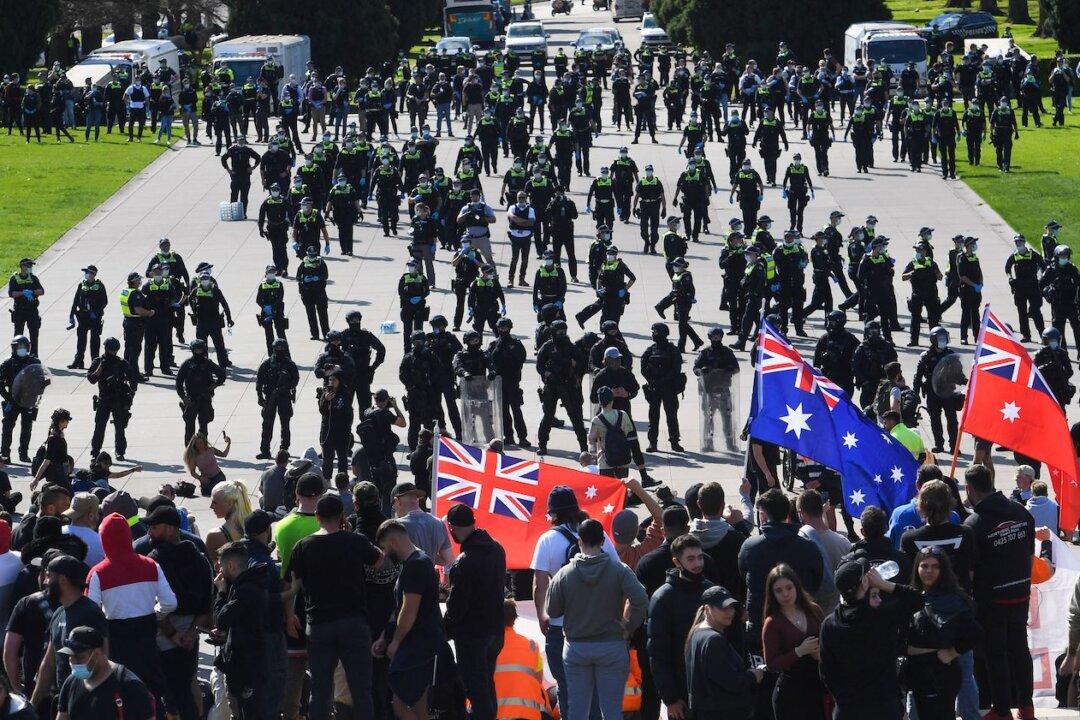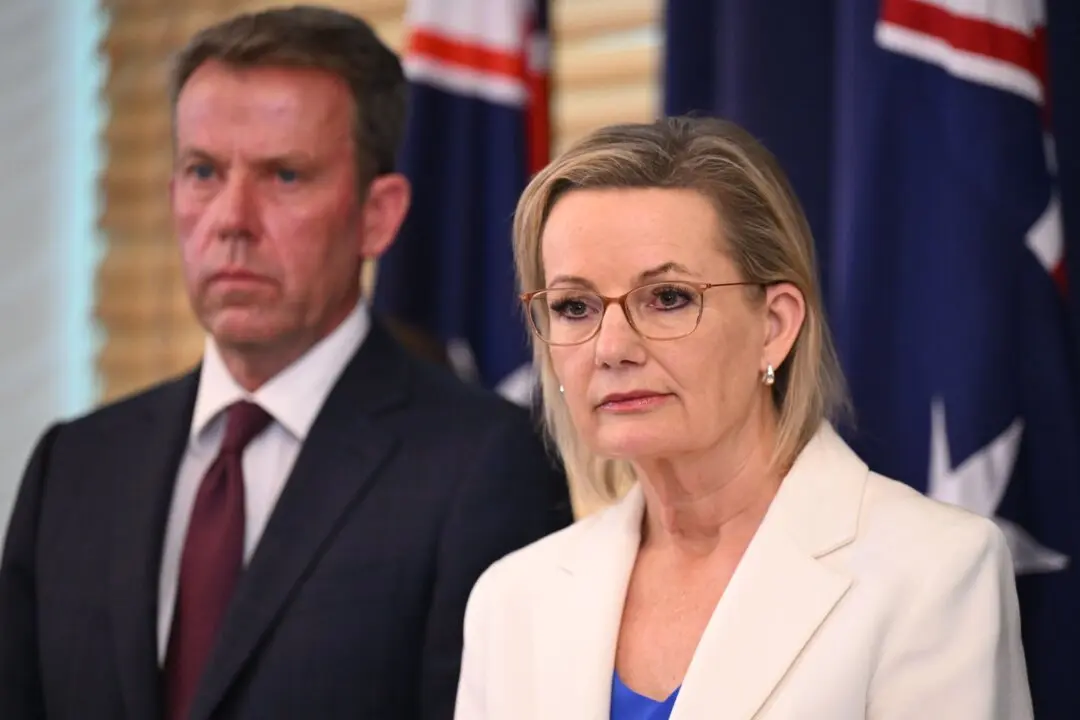Former Prime Minister Tony Abbott is urging authorities to let Australians make their own decision on whether to take the vaccine, amid ongoing protests in Melbourne involving thousands of Victorians against government-mandated COVID-19 restrictions.
“I don’t think anyone should break the law, but I can certainly understand people resenting what they see as bad laws and wanting to protest against them,” he told the Institute of Public Affairs (IPA) “Australia’s Heartland with Tony Abbott” podcast.





